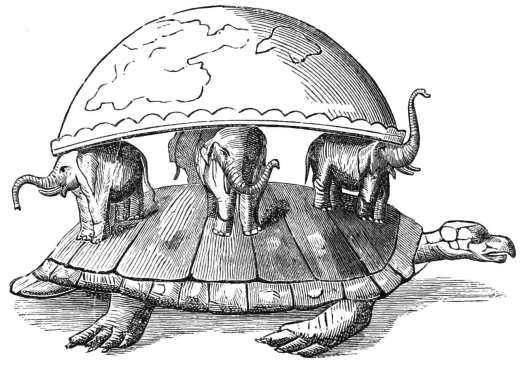THE MATERIAL ASPECT OF THE SOCIAL SITUATION
The dynamic logic of social relations is particularly intricate and has remained unconscious with Man because of his maximal proximity and involvement in his own situation. For millennia therefore, the activities of human society perhaps have been a greater mystery to him than every other part of the universe. Because of their greater distance from him he could see the movement of the stars and planets, or the life of the plants
43
and animals, more objectively. Therefore, the science of human society is today hardly as far developed as physics and astronomy were in the minds of Democritus and Ptolemy. It takes enormous sacrifice and discipline to view and accept himself as he is as an individual man, the structure of the individual psyche, its psychodynamics; but the degree of invisibility of the structure of human society, of its sociodynamics, is much greater than that of the single individual. The effort of becoming objective toward the socius encounters many more obstacles than to be objective toward his own individual mind. The involvement of the ego he can still grasp, perhaps he can pretend to know it because it operates within him. The involvement of the socius, however, he cannot pretend to know as it operates outside of him; but it is an outside to which he is inescapably tied.
This is a quote from Moreno — SOCIOMETRY, EXPERIMENTAL METHOD AND THE SCIENCE OF SOCIETY AN APPROACH TO A NEW POLITICAL ORIENTATION
J.L. MORENO — Foreword by GARDNER MURPHY
The same paragraph appears in a different context in Who Shall Survive? P73.
✳
Here are my thoughts about this passage which I think has some important concepts and raises a question for another post:
-
- “The dynamic logic of social relations is particularly intricate”
This might sound trite, but it shows how he is focused on the relationship, not the individual. Not like Freud, Jung and all those on that tree of thought, who were predominantly individualists, in theory and practice. And note the words dynamic logic. Dynamic, moving changing, alive, and logic, something that makes sense, that can be grasped. Moreno wrote this in 1949 so this is written at the time of the upsurge of systems theory, cybernetics and the Macey conferences in New York. Maybe he was influenced by the zeitgeist of the time, or influenced it.
-
- “…remained unconscious with Man because of his maximal proximity and involvement in his own situation.”
- Unconscious. He uses the word unashamedly even though he is equally unashamedly anti Freud later in the same essay. The words maximal proximity are nice. McLuhan used the analogy of a fish not knowing what water is. It is because of the water’s maximal proximity to the fish. While so much is made of the bias of maximal proximity we see that for the study of humans Moreno turns this problem into the crucial advantage. Science is turned on its head, the group studies itself. Of course! Humans are explorers of space, of stuff outside of us, minimal proximity, so to study ourselves we have to make that inescapable maximal proximity a feature of the work.
-
- “… the degree of invisibility of the structure of human society, of its sociodynamics, is much greater than that of the single individual. The effort of becoming objective toward the socius encounters many more obstacles…”
The invisibility of the structure of human society is a phenomena. Invisibility … we can see people, but not ‘systems’. someone famously said “you can’t kiss a system”. Now the meditation on Moreno’s writing here gets interesting… note the title of the section: The Material Aspect of the Social Situation. So does the relationship, the network, have a material aspect? What does that look like? You can see two things but the relationship between them is a space. The space between is a cherished notion in Imago Relationship Therapy. I’m not sure how Moreno resolves these questions about the material aspect. (I think I heard Timothy Morton talk sense on this. For another post.)
The socius. Another potent word. He uses it as if there is a reality that exists. I think of his other wording: the sociometric matrix as being somewhat similar, if not the same. The socius is similar and just as slippery as ‘the psyche’.
• “The involvement of the ego he can still grasp, perhaps he can pretend
to know it because it operates within him.”
Note the word pretend. For Moreno it’s all roles. There really is no inner even though he uses that language here.
✳
I’m looking forward to writing another post on the whole section on the material aspect of relationship




